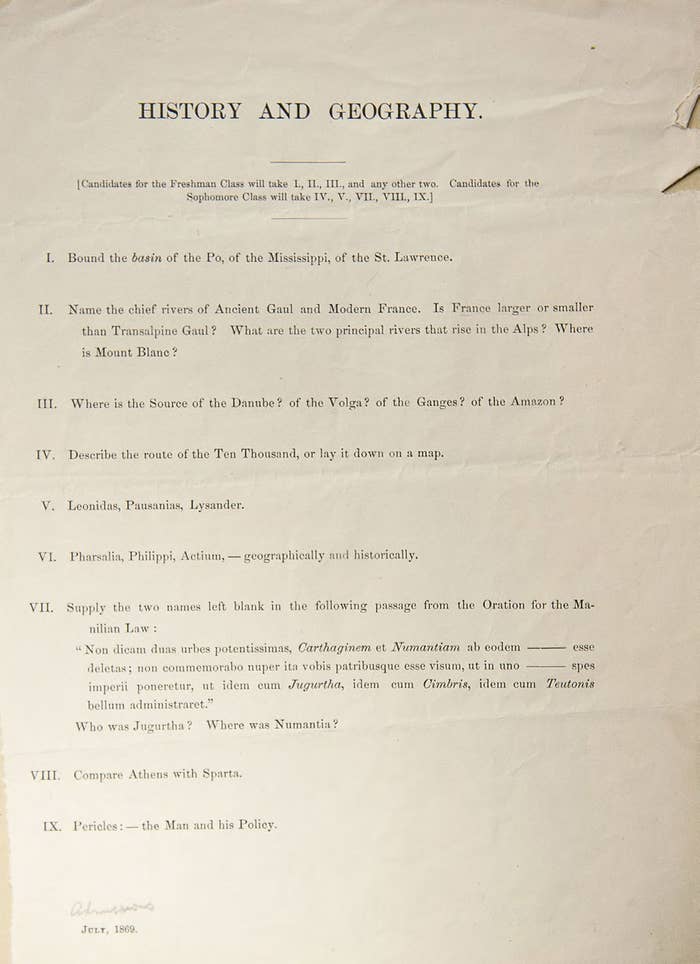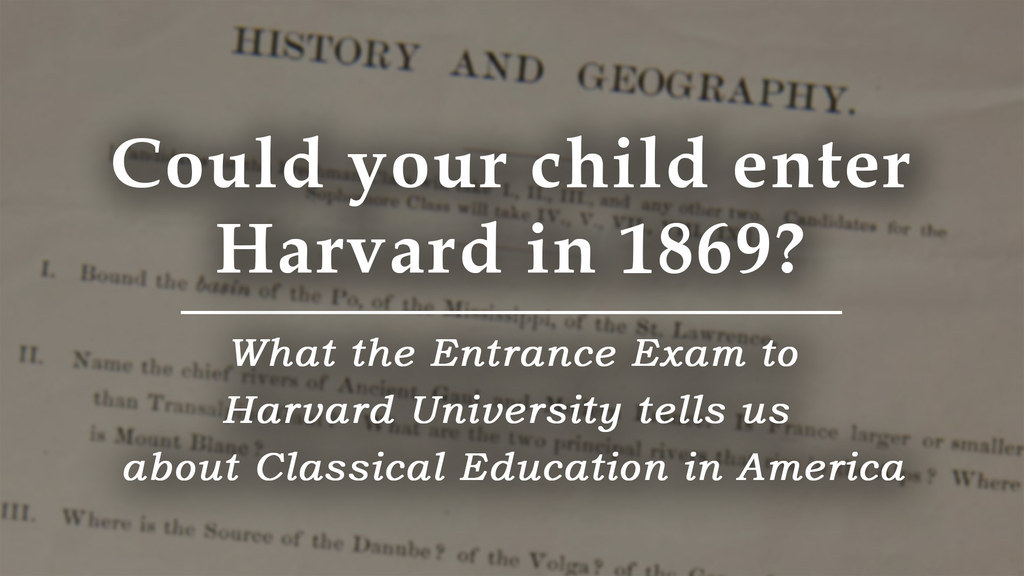The HISTORY AND GEOGRAPHY portion of the Entrance Exam for Harvard
I. Bound the basin of the Po, of the Mississippi, of the St. Lawrence.
II. Name the chief rivers of Ancient Gaul and Modern France. Is France later or smaller than Transalpine Gaul? What are the two principal rivers that rise in the Alps? Where is the Mount Blanc?
III. Where is the Source of the Danube? of the Volga? of the Ganges? of the Amazon?
IV. Describe the route of the Ten Thousand, or lay it down on a map.
V. Leonidas, Pausanias, Lysander.
VI. Pharsalia, Philippi, Actium, — geographically and historically
VII. Supply the two names left bank in the following passage from the Oration for the Manilian Law :
"Non dicam duas urbes potentissimas, Carthaginem et Numantiam ab eodem ________ esse deletas; non commemorabo nuper ita vobis patribusque esse visum, ut in uno _________ spes imperii poneretur, ut idem cum Jugurtha, idem cum Cimbris, idem cum Teutonis bellum administraret."
Who was Jugurtha? Where was Numantia?
VIII. Compare Athens with Sparta?
IX. Pericles: —the Man and his Policy.
The History and Geography portion of the exam

It was this education that enabled the American founding fathers to intentionally reject the (failed) "experiment in democracy" of ancient Athens, and to instead build a Constitutional and representative Republic, which was more like the Republic of Rome. Classical education shaped men like George Washington, and Jonn Adams. But the Founders were not returning to something merely ancient. They were continuing the tradition of classical education as it was handed down from the earliest of Christian history, starting with the Apostles themselves, and going into the early Church, and on into the Middle Ages, and particularly strong among the Protestant Reformers. As little as 60-70 years ago, it was still taken for granted that an educated person would have a classical education. The idea that education would not be classical, or that classical education is opposed to Christian education, is a very novel and modern idea.
Wondering how to give your children the kind of education that would allow them to pass the entrance exam to Harvard in 1869? Check out Roman Roads Media.


